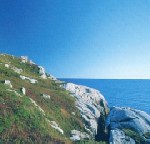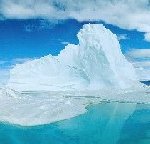

Canadian Nautical Research Society



|

|
|

|

|
Société canadienne pour la recherche nautique |
||||
|
| English | français | Freeman Tovell, 9 May 1918 &ndash 7 March 2011It is with sadness and respect that we announce that Freeman Tovell, to whom we awarded our Keith Matthews Award for best book published in 2008, passed away on 7 March 2011 at the age of 92. The following is extracted from The Globe and Mail of 2 April (Tom Hawthorn in Victoria.) The diplomat Freeman Tovell, who died at his home in Oak Bay, B.C., on March 7 at the age of 92, once negotiated the release of hostages held by bearded revolutionaries in Bolivia. The sang-froid displayed in that episode had also been helpful during wartime service aboard a minesweeper in waters under which lurked German submarines. A long career in the Canadian foreign service was followed by another distinguished period as a teacher at the University of Victoria. Of all his achievements, Tovell was proudest of a book for which the research and writing lasted decades. His biography of a Spanish sea captain who charted the waters along the coast of British Columbia was well received on publication three years ago, winning a major prize as well as laudatory reviews. Looking back, the book could be seen as the culmination of a life's interest in the sea and the men who sailed far and wide to explore its mysteries. At the age of 14, Tovell's parents presented him with a handsome volume published in leather and marbled boards in 1784. George William Anderson's book, popularly known as Cook's Voyages, described James Cook's three journeys into the unknown. His library soon after expanded with the addition of the two oversized volumes of the 1764 edition of Harris's Voyages, which included engraved plates of exotic creatures from far-off lands, as well as folding maps. Freeman Massey Tovell was born on May 9, 1918, to a prominent Toronto family. His father, Harold Murchison Tovell, the son of a Methodist minister, became a noted radiologist. In 1910, Harold married Ruth Lillian Massey, the daughter of Walter E.H. Massey, president of Massey-Harris Company Ltd., the leading manufacturer of farm implements in the British Empire. The couple had met through her cousin, Vincent Massey, who in 1952 became Governor-General of Canada. Freeman and his three brothers spent their early years on the 100-hectare Massey family estate and experimental farm at Dentonia Park. The estate took its name from Ruth's mother, Susan Marie Denton, who donated a substantial portion to the city in 1926 as public parkland. A par-3 golf course occupies part of the site today. Tovell graduated from the University of Toronto with a history degree and completed a master's at Harvard. He took a break from his studies in 1941 to serve as the best man at the New Year's Eve wedding of J.M.S. (Maurice) Careless, the future biographer of George Brown. The two men roomed together at Harvard, where Tovell could only but admire his classmate's frenzied, one-hand typing style, learned after losing an arm in a childhood cycling accident. On occasion, Tovell's name appeared in the society pages of Toronto newspapers. One item described his dancing in the Oak Room of the King Edward Hotel with Rosita LeSueur, whose mother was from Peru and whose father was an oil-company executive. The couple later married. Given his boyhood fascination with maritime exploration, there was not much doubt which service Tovell would enter as the war engulfed the world. He enlisted in the Royal Canadian Naval Volunteer Reserve. He served aboard HMCS Ungava, a minesweeper charged with hunting U-boats in the Gulf of St. Lawrence, where merchant ships made an easy target. "We had one or two scares," Tovell said, "but nothing that amounted to much." The young lieutenant was posted to the Canadian Naval Mission Overseas, based at London, though he was soon transferred to external affairs, serving for 35 years through the department's golden age. During the mid-1950s, Tovell worked in Ottawa as executive assistant to External Affairs Minister Lester Pearson, the future prime minister who won the Nobel Peace prize for helping to resolve the 1956 Suez Crisis. "He was wonderful to work for and with," Tovell once said. "Those were happy years." In 1962, he was named Canadian ambassador to Bolivia and Peru, a dual accreditation. He felt at home in Lima, where his wife's family made him welcome. He presided over the opening of a cancer clinic for children, sent reports home on the evolution of democracy in South America and spent time on the party circuit, where he was addressed as His Excellency while receiving florid introductions as "ambassador extraordinary and plenipotentiary of Canada." In 1963, striking tin miners in Bolivia, described in one account as "bearded young admirers of Cuba's Fidel Castro," seized hostages, including four Canadians and four Americans. Among other demands, the miners wanted the release of two jailed Communist union leaders. Bolivia sent 4,000 troops to the surround the Catavi mine, while U.S. President Lyndon Johnson pledged his support to the Bolivian government. In Ottawa, External Affairs Minister Paul Martin Sr. told the House of Commons that Tovell had been dispatched to the Bolivian capital of La Paz to negotiate the freedom of the Canadians. An ominous undertone to the negotiations was the knowledge that a similar incident 14 years earlier had ended in the murder of four American mining engineers. In this case, however, the standoff ended peaceably when 3,000 miners voted to release the hostages once the troops were withdrawn. The Peruvian posting permitted Tovell to do research on Juan Francisco de la Bodega y Quadra, the Peruvian-born diplomat and capitan de navio who had explored the waters off what is now British Columbia in the late 18th century. In time, Tovell arrived in Victoria, where he taught at the university while continuing to work on his project. He noted one of the city's streets bore Quadra's name, as did a large island off Campbell River. "No one knew much about him," he said. Tovell took as his cause the promotion of the forgotten accomplishments of a Spanish mariner known for his hospitality, who had befriended Chief Maquinna at Nootka Sound and who had ended hostilities with his British rivals. It was George Vancouver himself who had suggested the large island that now bears his name be known as Quadra's and Vancouver's Island. (In time, the Hudson's Bay Company eliminated the Spaniard's name.) "Serving on the outer edge of the empire, he lacked the support of an influential patron at the Spanish royal court," Tovell wrote. "Furthermore, as a colonial-born subject from Peru, he was hampered by the governmental prejudice that hindered colonial subjects seeking high rank in the church and government. Despite his constant efforts to be promoted from four-ring captain to flag rank, he was never able to gain full recognition for his achievements from his naval superiors and political masters." Two centuries later, Tovell sought to correct this unfair historical verdict with At the Far Reaches of Empire (UBC Press), the first full English biography of the explorer. The book received strong reviews - "impressively sober, extensively researched," Alan Twigg wrote in BC Bookworld - and received the Keith Matthews Award as the best book on a Canadian nautical subject in 2009. His widow recently signed a contract with the University of Oklahoma Press that will see the posthumous publication of Tovell's translation of Bodega y Quadra's diary. He leaves Rosita, his wife of 69 years, three daughters, a son and four grandchildren.
|
|||
|
Canadian Nautical Research Society - Société canadienne pour la recherche nautique
P.O. Box 34029 Ottawa, Ontario K2J 5B1 |
|||
|
Copyright © 2011, CNRS / SCRN. |
Last revised: 3 Apr 2011 |
||